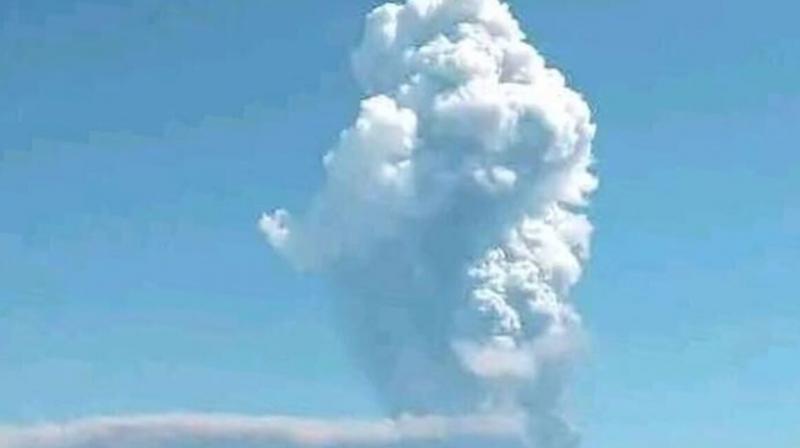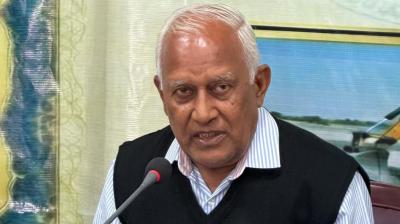
The plume's movement was carried by strong upper-air winds.
Ethiopian Volcano Ash Cloud Reaches India; IMD Clarifies Impact on Delhi’s Air Quality
A massive ash cloud from the Ethiopian volcano Hayli Gubbi has drifted across the Arabian Sea and entered Indian airspace. It has disrupted flights and triggered widespread public concern. According to the India Meteorological Department (IMD), satellite imagery confirmed the presence of volcanic ash over parts of western and northern India, but experts stressed that Delhi’s local air quality is unlikely to worsen.
IMD officials explained that the ash plume originated from Ethiopia’s Erta Ale volcanic region and travelled thousands of kilometres before spreading over Gujarat, Rajasthan, Haryana, and parts of Delhi NCR at high altitudes. The plume’s movement was carried by strong upper-air winds. However, IMD clarified that “the ash is currently dispersed at higher atmospheric levels and not expected to settle on the ground in Delhi.**.
Aviation operations experienced the most immediate impact. As reported by national dailies quoting Directorate General of Civil Aviation (DGCA) sources, at least 40–50 flights were diverted or delayed across western and northern India. Pilots were instructed to avoid affected air corridors, as volcanic ash can damage aircraft engines, windscreens, and sensors. Airlines were asked to follow precautionary protocols until the plume thins out.
Independent meteorologists cited in Indian media reports said that while the phenomenon was unusual, such long-range transport of volcanic particles is scientifically possible, especially when strong winds support cross-continental travel. They added that the ash layer is “thin but widespread” and will likely dissipate over the next 24–48 hours as winds shift.
On public health concerns, experts quoted by The Indian Express stated that ground-level pollution in Delhi continues to be driven primarily by local sources—stubble burning, construction dust, vehicle emissions, and winter inversion—not by the volcanic plume. IMD reinforced this view and noted that real-time air quality readings in Delhi showed no sudden spikes linked to external ash.
Overall, the event remains a significant “aviation and atmospheric science story”, but authorities repeatedly emphasised that Delhi residents do not face elevated health risks from the volcanic ash at this stage.














